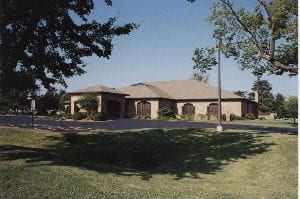Funeral Homes & Funeral Directors
The Place to go for Funeral Services & Facilities
Funeral homes are licensed by the state where they do business and are generally regulated by some type of State regulatory organization or board. They are also subject to Federal Trade Commission (FTC) regulations that govern the funeral industry. The FTC’s Funeral Rule is designed to help protect consumers from pressure to buy items they don’t need and ensure that funeral homes provide transparent pricing.
Click on Find Services to locate funeral directors, funeral homes, cemeteries, and other funeral service providers in your area.
Funeral homes today are either owned and operated by a family or a group of private individuals, or they are owned and operated by a corporation such as Service Corporation International (SCI), StoneMor, or Carriage Services. These corporations (also known as consolidators) started buying up family-owned funeral firms back in the 1980s and 1990s. Still, the trend reversed a bit in the 2000s when the consolidators found difficulty in operating these firms following large-volume acquisitions.
When you work with a funeral home, the person who works with you is generally a funeral director. Funeral directors are trained professionals who manage some or all of the funeral arrangements. They also provide technical services regarding the deceased’s care, preparation, presentation, and final disposition. In addition to working with funeral homes, funeral directors may be hired through a funeral home or mortuary, memorial societies, and alternative funeral service organizations. You may also hear funeral directors called “morticians” or “undertakers.”
Funeral directors are typically educated at an undergraduate college and a mortuary college. Licensing requirements are established state-by-state and governed by each state’s funeral service regulatory board. To become licensed, many states require a funeral director to serve an internship and pass a state board examination. Oftentimes, a funeral director’s license is required to manage a funeral home.
What Funeral Directors & Funeral Homes Do
Funeral homes and funeral directors handle the many details of caring for someone deceased. They also make all the arrangements for the funeral and memorial services. Below are some items that your funeral home and funeral director will handle.
- Available 24 hours a day to immediately respond when a death occurs.
- Remove the deceased from the place of death to a funeral home or other facility.
- Consult with survivors and assist in funeral plans.
- Arrange the embalming, sanitary washing, dressing, cosmetology, hairdressing, and restoration (if required) of the body.
- Handle administrative matters such as filing the death certificate, publishing death notices and obituaries, files death claim benefits.
- Provide funeral products like caskets, vaults, urns, memorial chests, etc.
- Provide stationery products such as guest register books, memorial folders, prayer cards, acknowledgment cards, etc.
- Coordinate plans with clergy, cemetery, and/or crematory.
- Provide transportation for deceased and family members.
- Secure facilities for visitations and services.
- Provide music, flowers, and other elements of the funeral.
- Supervise visitations, funeral ceremonies, and processions.
Alternatives to Traditional Funeral Homes
As the market for funeral services has grown more competitive, new options have begun to spring up. While this is good because it means you have more choices, it can also create confusion about where to turn. The table below summarizes the services offered by various funeral service providers.
Who to call …
| When you need: | Funeral Home | Storefront Funeral Service* |
Cremation Service | Memorial Society** | Cemetery | Specialty Provider | Monument Company | Specialty Internet Service |
|---|---|---|---|---|---|---|---|---|
| To transfer the body from the place of death | ● | ● | ● | ● | ||||
| To prepare and present the body | ● | ● | ● | ● | ||||
| To direct funeral services | ● | ● | ● | ● | ||||
| Caskets, urns, vaults, etc. | ● | ● | ● | ● | ● | ● | ||
| Grave markers | ● | ● | ● | ● | ||||
| Grave marker installation | ||||||||
| Burial or crypt space | ● | |||||||
| Burial services | ● | ● | ||||||
| Cremated remains scattered | ● | At Sea Burial Company | ||||||
| Filing of legal documents | ● | ● | ● | ● | ||||
| Floral arrangements | ● | ● | ● | ● | Florists | |||
| Out-of-town transportation | ● | ● | ● | ● | ||||
| To publish the obituary | ● | ● | ● | ● | Newspaper |
*A Storefront Funeral Service is a company that provides funeral services but does not use a standalone building. The facilities may, for example, be in a strip shopping center or an office building. In recent years, we have seen companies offering both burial and cremation services take advantage of existing buildings rather than owning or leasing standalone space.
**A Memorial Society is a non-religious, non-profit group that offers low-cost end-of-life services. These groups are generally membership-based and require some level of volunteer activity. They will negotiate favorable pricing with funeral service providers and make these services available to their members.